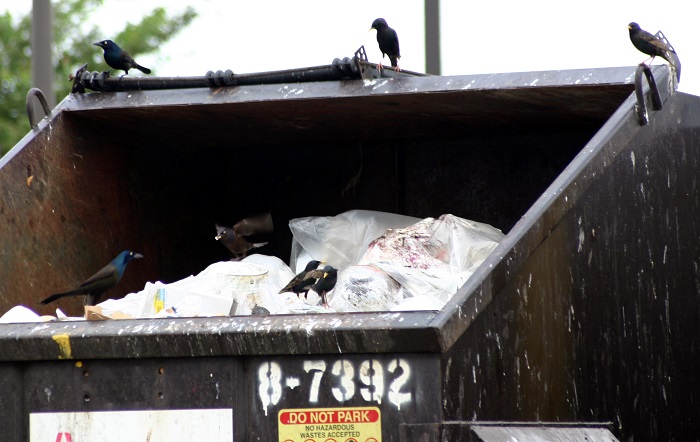 Last week fans of Better Call Saul got to watch hero/villian Jimmy McGill essentially demonstrate the legal principle that there is no privacy expectation protected under the Fourth Amendment of the U.S. Constitution when it comes to your curbside garbage. In 1988, the U.S. Supreme Court held in California v. Greenwood that the Constitution does not prohibit warrantless search of curbside garbage left for collection. (486 U.S. 35). Coincidentally, the Minnesota Supreme Court recently put the whole garbage-as-discoverable-evidence doctrine under the microscope of the Minnesota Constitution in the case of State v. McMurray (A12-2266).
Last week fans of Better Call Saul got to watch hero/villian Jimmy McGill essentially demonstrate the legal principle that there is no privacy expectation protected under the Fourth Amendment of the U.S. Constitution when it comes to your curbside garbage. In 1988, the U.S. Supreme Court held in California v. Greenwood that the Constitution does not prohibit warrantless search of curbside garbage left for collection. (486 U.S. 35). Coincidentally, the Minnesota Supreme Court recently put the whole garbage-as-discoverable-evidence doctrine under the microscope of the Minnesota Constitution in the case of State v. McMurray (A12-2266).
The facts of McMurray basically involved police seizure of contents left by McMurray in opaque plastic garbage bags on his curbside for trash collection. Murray’s attorneys argued that the warrantless search of his garbage was an impermissible search and seizure under Article 1 Section 10 of the Minnesota Constitution, which they argued protects beyond the U.S. Constitution standard. The Minnesota Supreme Court concluded that since this provision of the Minnesota Constitution reads the same as the Fourth Amendment of the US Constitution, it doesn’t afford any more privacy. Thus, police officers in Minnesota didn’t need a search warrant to sift through McMurray’s trash, since there is no expectation of privacy once garbage is placed outside for collection, just like in Greenwood. In a provocative dissent, Justice Lillehaug wrote that the nature of trash has changed since Greenwood, as has the scientific means of analyzing it for information. The majority, however, concluded that “Minnesotans are well aware of potential threats to their privacy and security and have prudently altered their conduct in response.”
So now Minnesotans, be aware that our Supreme Court believes that you can prudently manage your own garbage and its secure disposal. Garbage management and disposal, however, is a far trickier proposition in the professional legal context than it is for common households. Are you an attorney anticipating a big “clean out” of your office in the near future? Do yourself a favor and adopt a formal document destruction policy for your practice if you don’t already have one. Second, give a moment’s thought to what you plan to do with that recycling bin that you plan fill when carrying out your office purge. Assuming that the documents or other materials in the bin can be legally and ethically destroyed (a subject beyond the scope of this blog), do you know the proper and secure means of doing so? As for your clients, they should also know which materials should be kept, destroyed, or turned over to you, plus the secure means to carry out each option. (Obviously, all of these questions should be asked not only of the hardcopy documents and objects at hand, but also of electronic information.)
Before your (or your client’s) private information comes into the wrong hands (i.e. identity thieves, stalkers, or enterprising Jimmy McGill-esque snoops), consider reading some of these resources available at the law library:
- Frans, Myron L., and Christopher J. Kopka, “Records Management and Retention Policies for Law Firms,” Bench & Bar of Minnesota (April 1998): 28-34. (This article provides a practical overview on your ethical obligations from a Minnesota standpoint.)
- Kent A. Gernander, Client Relations Formbook (2014 2nd Ed.). (See Chapter VI – File Retention and Destruction)
- Robert L. Haig, Successful Partnering Between Inside and Outside Counsel (2010). (See Chapter 29 – Management of Corporate Documents.)